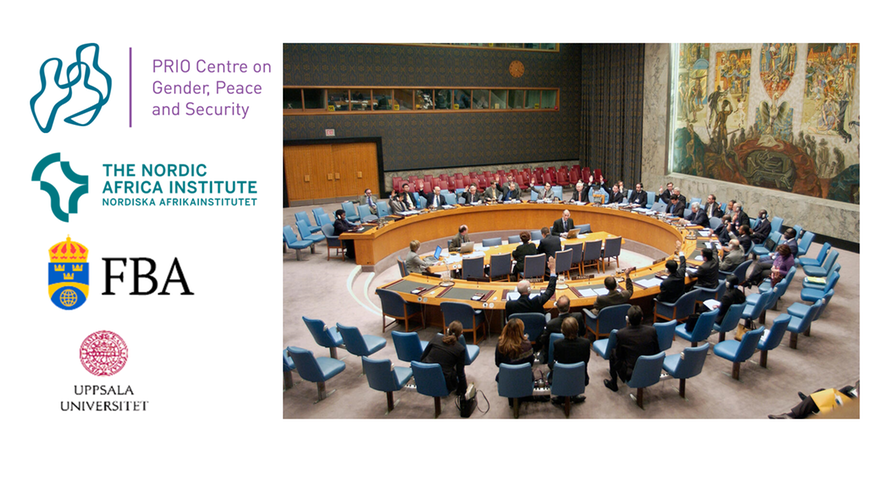The Elected Ones: Taking Care of Business in the UN Security Council, a Study on Sweden 2017-18

Security Council Meets on Liberia. A wide view of the Council chambers during the vote on resolution 1579 (2004) concerning Liberia. Unique Identifier: UN7769519 - Production Date: 12/21/2004 2:28:58 PM
On 11 June 2021, state representatives gathered in the UN General Assembly to elect new members to the UN Security Council (UNSC) for a two-year term. Elected states have an opportunity to affect core matters of international peace and security, but what are the practical implications for a state as one of the elected? This question is at the centre of the report Sweden as an Elected Member of the UN Security Council (2017-18): Promoting Women, Peace and Security as Core Council Business.
Watch the recorded webinar here:
This webinar launch of the report brings together scholars from PRIO, New York University, NAI, the Folke Bernadotte Academy, and decision-makers from foreign ministries in the Nordic region to discuss the findings of the report, promote dialogue, and advance our knowledge on elected UNSC members.
The report takes as its starting point that the opportunities for an elected state to influence Council proceedings might differ between policy areas, and particularly deliberates on the role of elected states in promoting the implementation of the resolutions on Women, Peace and Security (WPS).
Sweden sought to promote WPS becoming ‘core Council business where attention was paid to women’s participation in Council proceedings and the integration of WPS in regular UNSC resolutions in order to, in the words of the UN Secretary-General, move toward “impactful action rather than empty rhetoric”.
Norway, now serving on the Council, and Denmark, seeking a seat for 2025-2026, equally prioritize the promotion of WPS. As expressed by Norway’s Minister for Foreign Affairs, Ine Eriksen Søreide “… people in the Security Council and outside the Security Council, expect from us, that we will push this agenda forward”.
Thereby, the Nordic states join a long line of states before them in promoting WPS, starting with elected members Bangladesh and Namibia in 2000. Despite growing interest among elected states, however, research on their role and efforts on WPS in the UNSC remains limited, and is needed in order to assist in understanding progress and setbacks. This report seeks to contribute to ongoing efforts to address these gaps.
This event is organized by:
- PRIO, Centre on Gender, Peace and Security
 External link, opens in new window..
External link, opens in new window.. - The Nordic Africa Institute, hosting the webinar.
- FBA, Folke Bernadotte Academy
 External link, opens in new window.
External link, opens in new window. - Uppsala University, the Department of Peace and Conflict Research
 External link, opens in new window.
External link, opens in new window.
Acknowledgements
The report is based on a project funded by the Norwegian Foreign Ministry, with additional support from the Folke Bernadotte Academy (FBA), the Nordic Africa Institute (NAI) and Uppsala University. The research was conducted as a collaboration between PRIO and Uppsala University. The project is part of a larger research cooperation on the role of elected members between the Nordic Africa Institute and PRIO, with the University of Pretoria, funded by the Swedish Research Council.
This event may be photographed and/or filmed, due to our public service mission. Please inform us if you object to this.
